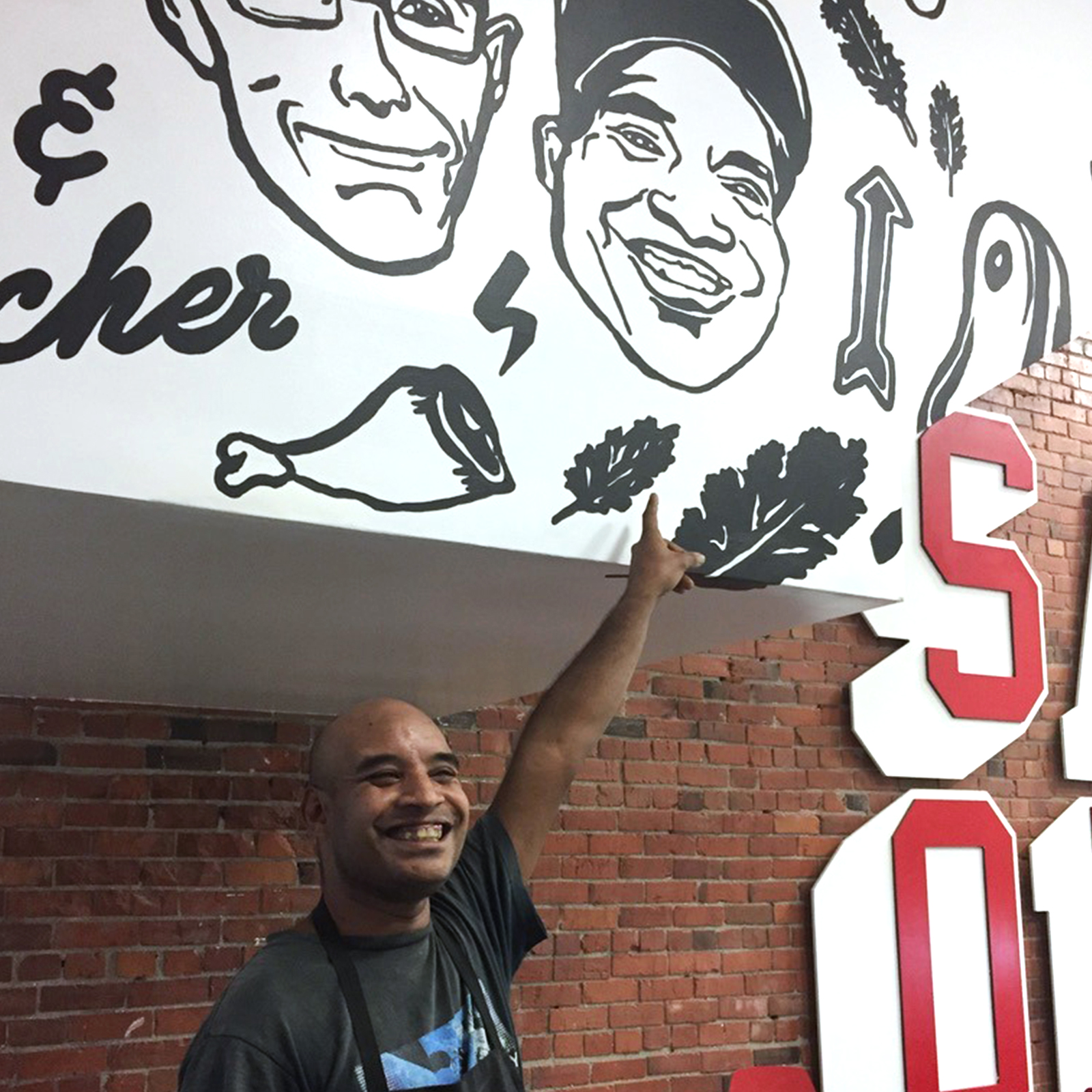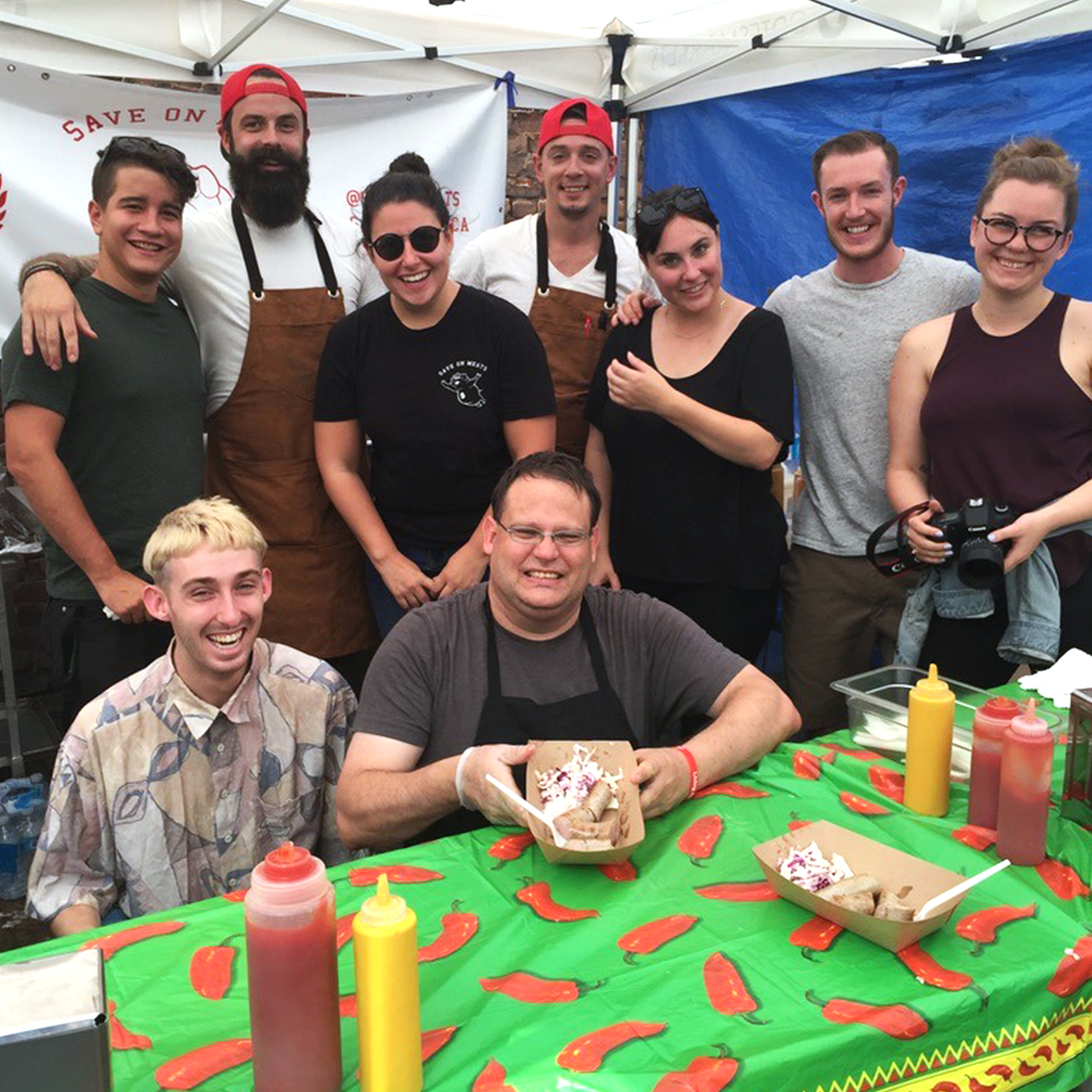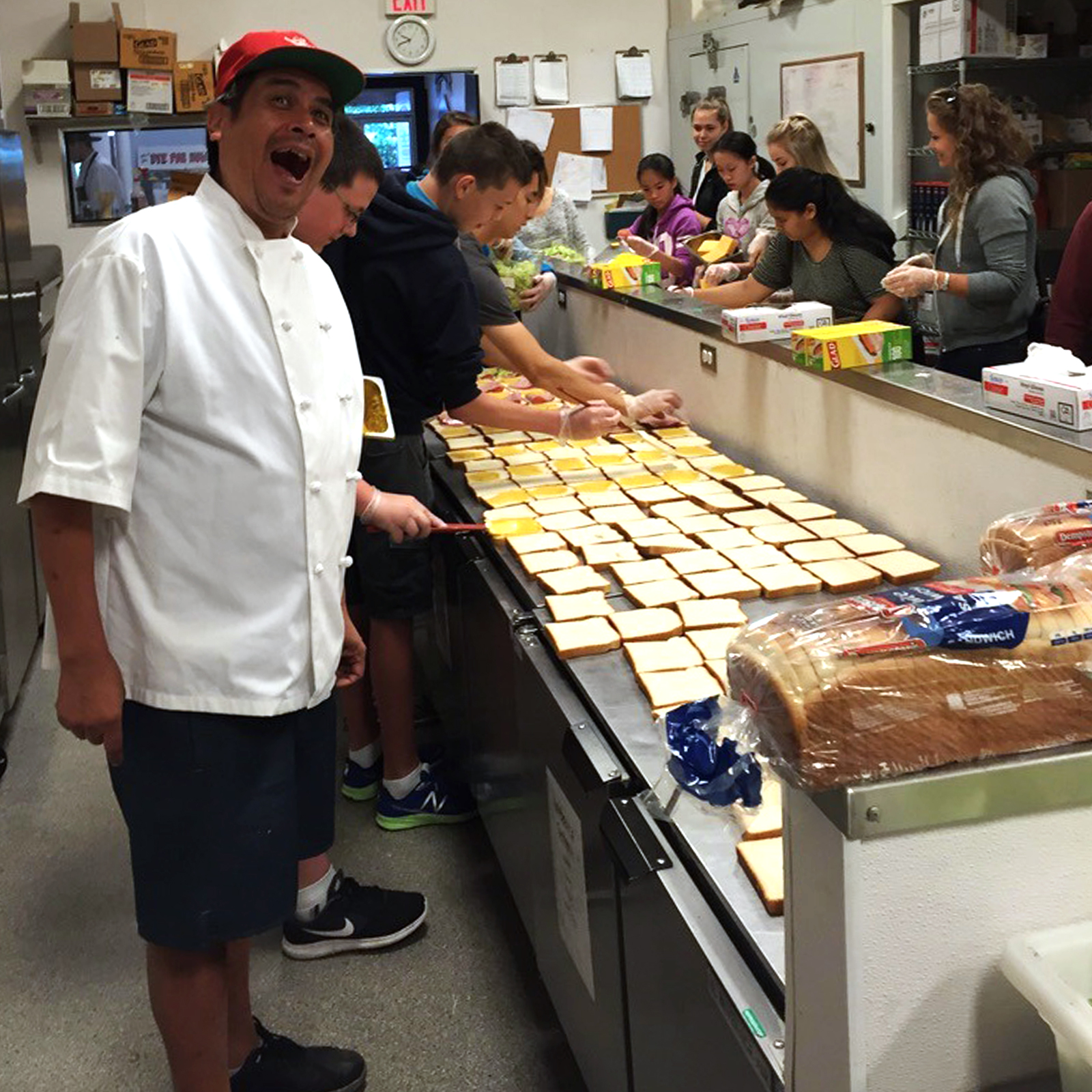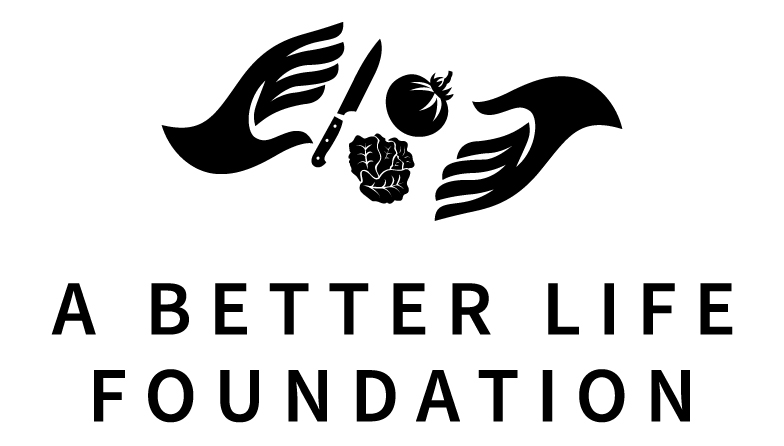DIVERSE, INCLUSIVE COMMITMENT
The food & beverage industry has a notoriously high staff turnover. BC records the industry average as 70% – 80% per year. Individuals who who identify as having one or more traditional barriers to employment turnover at a rate of just 30% per year. Traditional barriers can include a history of addiction. Poverty, Recidivism management. Age. Sexual orientation. Time spent away from the workforce. A Better Life Foundation’s inclusive hiring practices facilitate a staff team with at least half identifying with traditional barrier to employment. These numbers show that our workforce should have at least 50% more longevity than the average kitchen and that has been our experience in the kitchen!
Stats aside, the proof is in the pudding (or whatever recipe Chef has whipped up for the day)! Many of our traditionally barriered employees stick with us for years. Culture and community benefits from the stable, family-like environment that develops after long periods of staff continuity. There are many pragmatic benefits of a tight-knit, familiar team! But, A Better Life Foundation’s low-barrier jobs with fair wages, benefits and a respectful, safe workplace environment give staff more than meaningful employment. Accessible jobs give people the opportunity to (re)define their lives with new skill sets, support networks, and more.

STEWARDING DIVERSITY
Layering partnerships with step-to-work organizations that include Open Door Group, the YMCA, Mission Possible, Pacific Autism Family Network and Jobs West Employment Services, we advocate alongside the Provincial Government of British Columbia’s group of Accessible Employers. By entering this collective of conscious, accountable small and large businesses, we are able to sustain our action in creating accessible, inclusive entry-level jobs within our own organization. This network allows us to share information that informs our business practice. In turn, we are able to educate other businesses on the benefits of hiring individuals with traditional barriers and creating employment.

MEASURABLE, SUCCESSFUL INCLUSIVITY + ACCOMMODATION
Understanding our workforce is as important as understanding those we are in service to. By facilitating anonymous, yet open communication inroads by way of casual, caring interviews and/or written questionnaires to suit the employee’s preference, we aim to measure the needs of our team. For example, a small tweak to the flow of the day might better suit an employee managing autism, or a specific routine shift schedule might better suit an employee managing single-parenthood. By understanding the needs of a diverse workforce, we can adapt and ultimately provide a better service to those who need us most.

